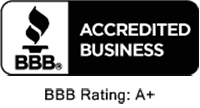Wild Animal Removal | Wild Animal Disposal MN
There are more species of rodents than there are of all other mammals combined. They include beavers, chipmunks, mice, porcupines, rats, and squirrels. Rodents breed so swiftly that they would soon overrun the earth if they were not the prey of almost all flesh-eaters. Other animals such as moles, rabbits, gophers, snakes, mice, and other rodents can wreck some serious havoc to your property.
Rodents, unlike other mammals, have only two pairs of incisors (front teeth)—one upper pair and one lower pair. The incisors grow throughout life. Gnawing grinds the edges into a chisel shape. Rodents have no canine teeth. In many species, the gap between incisors and molars is filled by a hairy pad that prevents inedible gnawed material, such as wood chips, from entering the mouth cavity by keeping it between the mouth walls and the teeth. Many rodents have cheek pouches, which they use for carrying food.
Most rodents are burrowing animals, but some live in trees and others spend much of their time in water. Almost all are vegetarians; some, such as squirrels, eat both plants and animals.
As a group rodents are destructive pests. They destroy grains and other foods, destroy property by eat away at your electrical wiring, roof line and siding, ruin land with their burrows, and carry various kinds of diseases.
Rodents are reservoirs of a number of human diseases, transmitting disease-causing organisms through urine, droppings and bites. Rodents can act as both intermediate infected hosts or as hosts for arthropod vectors such as fleas and ticks.
Rodent populations are affected by weather conditions. In particular, warm, wet winters and springs increase rodent populations, which have been observed in recent years. Under climate change scenarios, rodent populations could be anticipated to increase in temperate zones, resulting in greater interaction between human beings and rodents and a higher risk of disease transmission, especially in urban areas.
Hantavirus or Arenavirus are some names you may have stumbled across in the news in the past few years, as the media reported the severe illness or even death of people in the United States or elsewhere in the world.
Rats can carry more than 40 disease-causing viruses and bacteria, including Hantavirus and salmonella. The house mouse is the primary carrier of an illness called Lymphocytic Choriomeningitis Virus, or LCMV, which causes symptoms such as headache, fever, chills and muscle aches in people with poor immune systems.
How do I avoid exposure to Hantavirus or Arenavirus?
 Since the sole route of these pathogens into humans is by way of infected mice and their waste products, avoiding the diseases consists of two primary measures:
Since the sole route of these pathogens into humans is by way of infected mice and their waste products, avoiding the diseases consists of two primary measures:
- Eliminating rodents from your environment
- Properly cleaning up the areas that rodents have inhabited
Wild Animal Prevention Tips
It is his recommendation that you never directly contact rodents, pest birds, or their unsanitary conditions. If you trap rodents you should wear gloves and other protective clothing when removing them, as well as while cleaning up after them. It has long been known that birds, bats, and rodents pass disease agents in their urine and feces. Over 40 diseases are associated with pigeons, starlings, and sparrows, many of them respiratory problems that are contracted from inhaling infected fecal dust.
While they are downright cute, burrowing chipmunks and squirrels and other rodents are not the best of companions. Put away foods at night and don’t leave tidbits around just to attract the cute little things. Potato Chips probably aren’t the healthiest things for the critters anyhow.
How should I clean up an area contaminated by rodents?
Your main considerations, in avoiding nasty diseases spread by rodents, is to avoid touching surfaces with your bare skin, and to avoid inhaling airborne dust from the surfaces. Again, you may want to consider calling a licensed professional from the pest control industry in your area. They will have a process in place to effectively handle the problem.
You can them evaluate your situation. They are trained in the control of mice and rodents, and have received information on proper cleanup of potentially contaminated environments, and already has and wears the appropriate protective equipment.
Should you choose to tackle the cleanup yourself the following steps have been recommended by many of the knowledgeable people in the industry and from universities.
- Ventilate the affected area the night before by opening doors and windows where possible.
- Wear rubber gloves, safety glasses, and at least a properly-fitting dust mask. Most appropriate is a respiratory protective device with a “HEPA” filter, capable of filtering out even the tiny, tiny viruses.
- Moisten the area, nests, contaminated traps, or dead rodents or their droppings with a spray solution of disinfectant. Follow the instructions on the container of disinfectant – such things as Lysol or bleach. The National Pest Management Association’s suggestion would be about 1 1/2 cups of household bleach in 1 gallon of water. If the contaminated area happens to be furniture and it is surfaces that can be cleaned, then they should be professionally cleaned. If it was furniture with nests inside it you should consider getting rid of the items.
- DO NOT VACUUM to remove rodent droppings.
- Captured rodents should be placed in a plastic bag without touching them. Use the bag like a glove to seal it inside for disposal. Any traps and the area around it should be disinfected.
- Wash your gloves in disinfectant prior to removing them, and then wash your hands thoroughly.
This is some basic information about Hantavirus and Arenavirus, and mice and rodent control in general. There is a great deal of information available on the Internet, and good, factual, accurate information can be found on sites provided by The Centers for Disease Control (CDC), State or County Health Departments, and the medical community.
Wild Animal Management
If you have done everything you can and still have mice or rodents in your home, it is important to contact a professional. Mice and rodents can colonize under concrete and porches, in your attic and other hard to reach places. A professional exterminator can remove the mice and rodents from your Minnesota home as well repair any of the damage they may have caused. They will have the tools and techniques to rid you of these unwanted pests once and for all.
Keep Mice & Rodents Away From Your Home
Find out more about Lymphocytic Choriomeningitis (LCMV)
A checklist of precautions is provided by the Centers for Disease Control and Prevention, providing tips for sealing the home to keep rodents out, using traps to eliminate existing rodents, and maintaining a clean, healthy home. Prevent LCMV from wild rodents
Centers for Disease Control and Prevention
Lymphocytic Choriomeningitis Fact Sheet
Facts About Hantaviruses
“Facts About Hantavirus” Brochure ![]() [PDF – 182 KB]
[PDF – 182 KB]
This brochure provides detailed information for prevention of hantavirus in and around your home.





